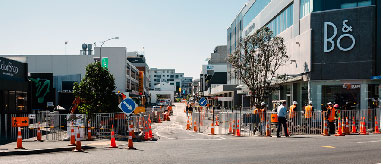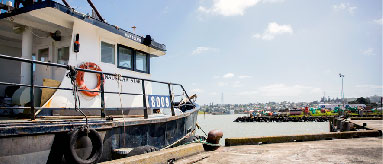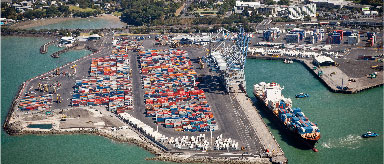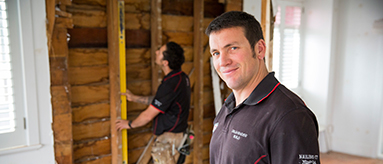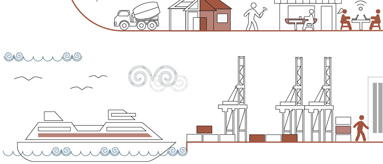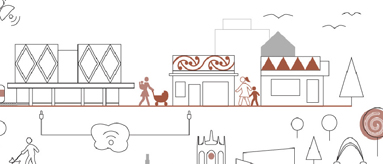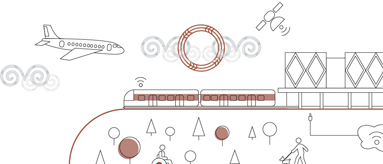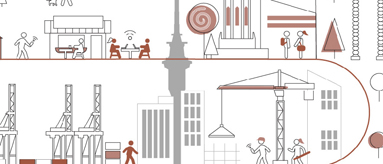Direction 3
Ara 3: Ki te whakawhanake pūkenga, pūmanawa mō te ahua hurihanga o te mahi me te panekiretanga taumano Develop skills and talent for the changing nature of work and lifelong achievement
The way we work, and the skills that Auckland's economy requires, is constantly evolving. It is crucial that current and future workers have the relevant tools to succeed.
This means ensuring:
- our younger generations are equipped with the skills of the future
- our current working population is ready for change.
Rapid technology growth is changing the nature of work and the structure of workplaces, and the rate of this change has increased significantly over recent years. (See our map, originally published in June 2018, looking at job areas for advanced industries.)

Technological changes generate opportunities and challenges, requiring different business models and changes for workers.
We have more flexibility and are able to:
- work part-time
- work remotely
- be self-employed or have multiple jobs.
It is important to ensure this does not occur at the expense of a decent standard of living.
We also need to prepare for climate-related changes in the workforce as many of Auckland’s core industries such as manufacturing and retail will be affected. Some skills will become less relevant while others may be reinvented for the low-carbon economy.
To flourish in this changing economic landscape, Aucklanders will have to continuously increase their skills, retrain on the job and develop throughout their lives.
We have to strengthen systems and opportunities to enable this continuous learning. Business, industry, and unions have important roles in proactively supporting their workforce to retrain and develop.
Industry and the education sector will need to work even more closely together to be responsive to this changing environment and to create opportunities for people to develop the right skills at the right time.
All sectors have a role to play. We need to create a system-wide approach that lifts employment for all Aucklanders across the spectrum of low to high skilled roles.
Workplaces need to build more flexible cultures that attract and best utilise the talents of older workers, younger workers and everyone in between.
Greater emphasis needs to be given to those who experience sustained poor employment outcomes such as disabled Aucklanders. As technology becomes faster, more affordable and accessible, it will enable more employment opportunities for people of all abilities.
The introduction of advanced technology is likely to reduce our reliance on technical skills and increase the need for uniquely human skills such as critical thinking, creativity, and communication. These soft and creative skills are likely to become more valuable than they are at present.
Emerging skills in areas such as data science, customer experience design, digital and cybersecurity will also be required across industries and organisations.
Learning and developing skills do more than improve labour market outcomes; they improve many socio-economic outcomes for individuals and families. By building soft skills and creative and technical skills, as well as general knowledge, throughout our lives, Aucklanders will develop the resilience necessary to meet this changing future.
Related information
- Impact of new technology
- The Tripartite Economic Alliance
- The importance of soft skills
- Educational achievement of Auckland's children and young people
- Why lifting productivity is important
- Groups that experience poor education and employment outcomes
- Māori and Pasifika Trades Training programme.

